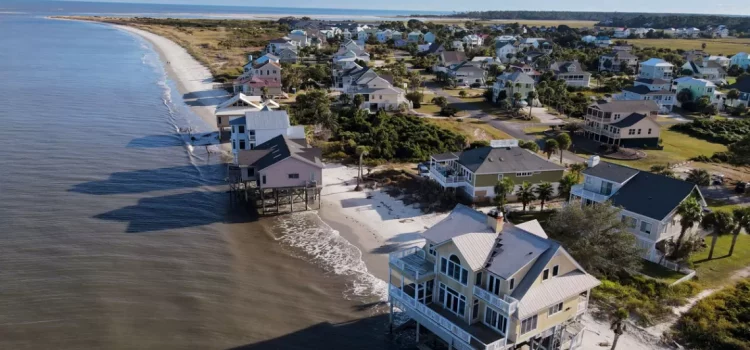
In an era where the digital and physical worlds continue to converge, a groundbreaking phenomenon has taken root – the Metaverse. This virtual realm, once confined to the pages of science fiction, is now a burgeoning reality, reshaping industries and economies. As we venture deeper into this uncharted territory, it becomes evident that the Metaverse is not just about gaming and social interaction; it’s also about real estate.
Metaverse real estate is no longer a mere concept. It’s a tangible, lucrative market with a promise that goes beyond imagination. This article explores the fascinating intersection of real estate, NFTs, virtual properties, and the boundless possibilities of the Metaverse.
NFTs: The Building Blocks of Virtual Real Estate

Non-Fungible Tokens (NFTs) have taken the world by storm. These unique digital assets are at the heart of the Metaverse’s real estate revolution. NFTs, essentially digital certificates of ownership, grant the holder exclusive rights to virtual properties within the Metaverse. These properties can range from virtual homes, office spaces, to entire virtual islands.
One of the pioneers in this field is Decentraland, a blockchain-based virtual world where users can purchase, develop, and trade virtual land. Each parcel of land in Decentraland is represented by an NFT, and ownership can be transferred as easily as sending an email. This brings a new dimension to property ownership, and we can only expect this trend to grow.
The Rise of Virtual Architectural Marvels
The Metaverse isn’t just a barren virtual landscape. It’s a canvas for architectural innovation. Virtual architects and designers are crafting awe-inspiring creations that defy the laws of physics, creating fantastical virtual properties that would be impossible in the physical world.
Consider the digital architect who builds a gravity-defying mansion that floats in the clouds or an underwater city teeming with virtual marine life. Virtual properties are free from the constraints of reality, allowing architects to push the boundaries of creativity in ways previously unimaginable.
Market Dynamics and Speculation
Metaverse real estate is not only about creativity but also profit. Investors are flocking to the Metaverse, much like the real estate boom of the past. Prices for virtual properties are skyrocketing, and speculators are making substantial gains. Just as in the real world, location matters in the Metaverse. Properties in prime virtual locations command high prices, and savvy investors are buying low to sell high.
The Ethical Dilemma of Virtual Property Rights
However, with the rapid growth of Metaverse real estate, ethical concerns are emerging. What are the rights of virtual property owners? Can a company or platform simply decide to alter the landscape, devaluing virtual properties? And what about copyright and intellectual property rights within these digital realms? These are all questions that remain largely unanswered, and as the Metaverse expands, the need for regulation and ethics will become increasingly paramount.
Looking Ahead: A Metaverse in Flux
The future of Metaverse real estate is a complex, multifaceted landscape. NFTs and virtual properties have brought new opportunities, challenges, and ethical quandaries to the forefront. The Metaverse is a wild frontier that holds the potential for unprecedented human collaboration, creativity, and economic growth.
As we navigate this uncharted territory, one thing is certain: Metaverse real estate is not just a speculative bubble but a transformative force that will redefine the concept of ownership in the digital age. It is up to us, as participants and observers, to ensure that this digital realm remains as exciting and egalitarian as it is promising. The future of the Metaverse is still being written, and its real estate sector is a chapter that promises to be captivating.
Stay tuned as we continue to explore this evolving landscape, pushing the boundaries of what’s possible in the Metaverse and beyond.










